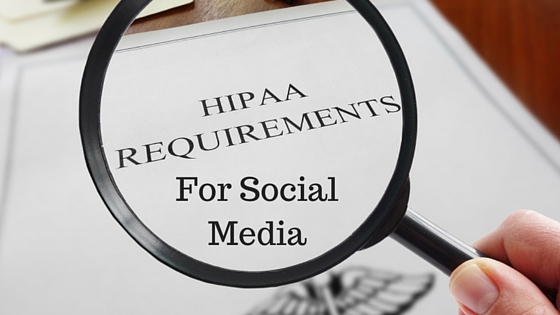How to Stay HIPAA Compliant on Social Media
Posted by Emily Thompson on Sep 2nd 2020

Social media marketing is a powerful tool, one that can allow pharmacies to easily attract and acquire the new clientele needed to stay both competitive and successful. Social media sites and services provide an effective way to improve customer relations, share educational information regarding various medications and treatment options and the opportunity to create a "ripple-effect," one that offers a cost-effective way to capture the interest and attention of potential customers in far greater numbers than would be possible using more conventional advertising methods. Although social media marketing has much to offer, advertising strategies that fail to comply with HIPAA’s rules and regulations can lead to numerous issues that may even include legal consequences.
Creating the Right Social Media Marketing Policy
Lacking a clear, comprehensive policy regarding social media marketing efforts can increase the likelihood of HIPAA violations, negative consequences and even costly fines and legal fees. Creating an official marketing policy will provide all employees involved in the process with a clear and concise set of guidelines. Common HIPAA compliance problems that may result due to the lack of set policy may include:
1. Content created and posted by employees who lack an effective understanding of HIPAA.
2. Oversights due to photos and text that have not been properly screened or reviewed prior to posting.
3. Errors caused when marketing roles and responsibilities are not clearly defined.
From determining which employees will be involved in the creation and sharing of content to ensuring posts and photos are properly screened and reviewed prior to posting, a comprehensive and well-crafted policy may allow pharmacies to avoid many of the most common and costly mistakes.
Maintaining a Current Understanding of HIPAA Laws and Regulations
Laws and regulations are subject to change, and pharmacies that fail to update or review their marketing policies from time to time are far more likely to be faced with a complaint or issue. Pharmacies that are heavily invested in social media marketing may benefit by consulting with an attorney or other legal professional to ensure they are able to create and maintain marketing strategies and policies that will be both HIPAA compliant and as effective as possible. The insight and guidance of an experienced legal professional can prove to be an invaluable resource for ensuring HIPAA compliance when marketing online.
Ensuring All Marketing Content is Free of Identifiers
Removing any information that may be used to identify a patient may not be as straight-forward as many pharmacies might expect. Even content that includes seemingly minor details, such as the date, time of day or location of a past interaction may be enough to reveal the identity of a patient. Many pharmacies often overlook the risks of sharing digital information through a social media site, and may run into problems should they fail to assess URLs, IP addresses and Email information to ensure all content is fully HIPAA compliant.
Obtaining Written Consent to Share Information
Content that showcases the personal experiences of an individual patient or customer can often make a very compelling addition to a marketing campaign. While such information may be shared once the patient has provided written consent, pharmacies would be wise to ensure that any patients featured in their marketing campaign are fully aware of the risks and potential consequences that may result. Written consent is not always enough to ensure that sharing patient information protected by HIPAA will not result in future problems.
